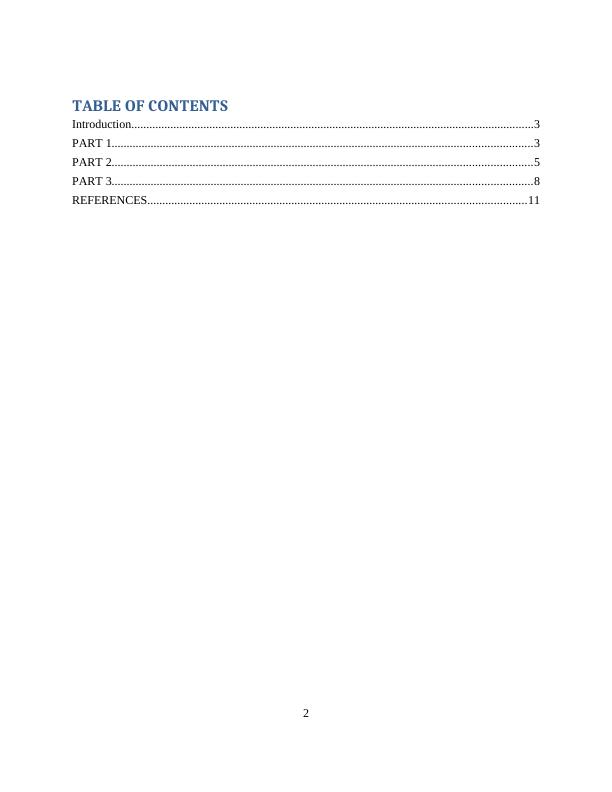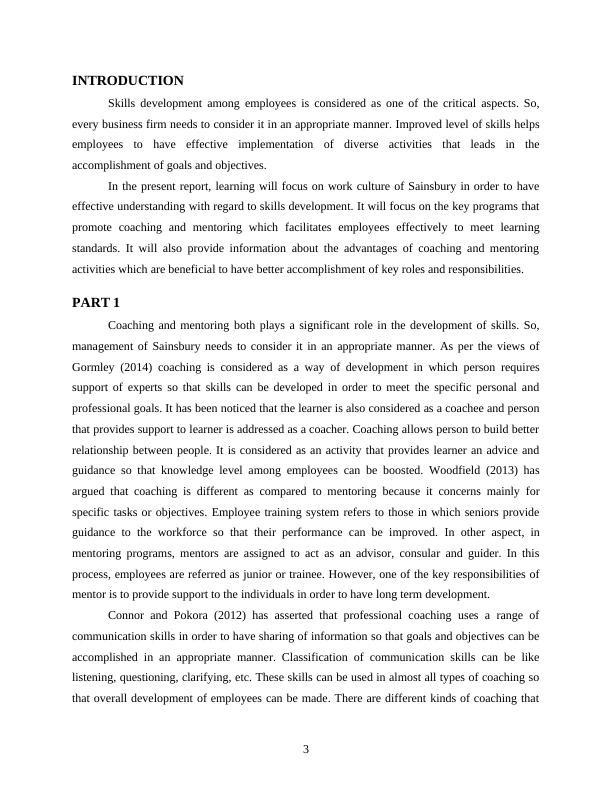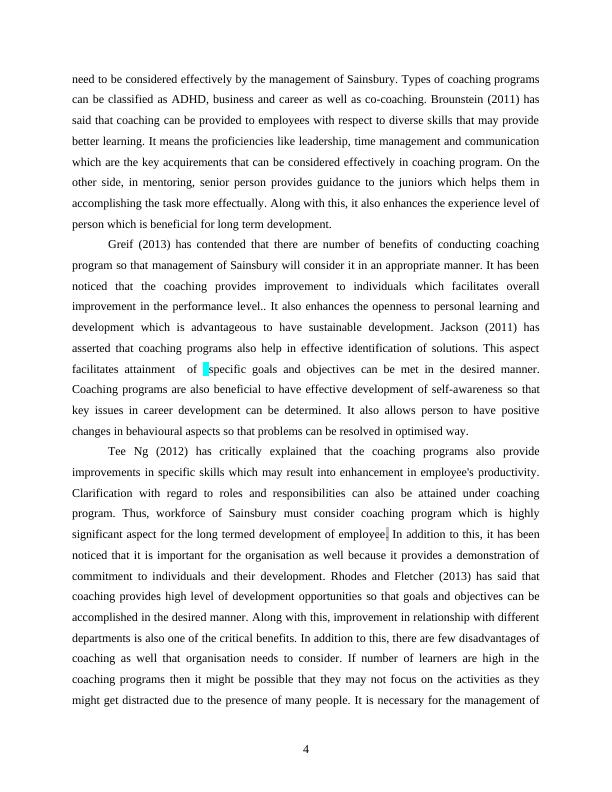Developing Skills in Work Culture
Added on 2020-01-07
12 Pages3873 Words168 Views
Developing Skills1

TABLE OF CONTENTSIntroduction......................................................................................................................................3PART 1............................................................................................................................................3PART 2............................................................................................................................................5PART 3............................................................................................................................................8REFERENCES..............................................................................................................................112

INTRODUCTIONSkills development among employees is considered as one of the critical aspects. So,every business firm needs to consider it in an appropriate manner. Improved level of skills helpsemployees to have effective implementation of diverse activities that leads in theaccomplishment of goals and objectives. In the present report, learning will focus on work culture of Sainsbury in order to haveeffective understanding with regard to skills development. It will focus on the key programs thatpromote coaching and mentoring which facilitates employees effectively to meet learningstandards. It will also provide information about the advantages of coaching and mentoringactivities which are beneficial to have better accomplishment of key roles and responsibilities.PART1Coaching and mentoring both plays a significant role in the development of skills. So,management of Sainsbury needs to consider it in an appropriate manner. As per the views ofGormley (2014) coaching is considered as a way of development in which person requiressupport of experts so that skills can be developed in order to meet the specific personal andprofessional goals. It has been noticed that the learner is also considered as a coachee and personthat provides support to learner is addressed as a coacher. Coaching allows person to build betterrelationship between people. It is considered as an activity that provides learner an advice andguidance so that knowledge level among employees can be boosted. Woodfield (2013) hasargued that coaching is different as compared to mentoring because it concerns mainly forspecific tasks or objectives. Employee training system refers to those in which seniors provideguidance to the workforce so that their performance can be improved. In other aspect, inmentoring programs, mentors are assigned to act as an advisor, consular and guider. In thisprocess, employees are referred as junior or trainee. However, one of the key responsibilities ofmentor is to provide support to the individuals in order to have long term development. Connor and Pokora (2012) has asserted that professional coaching uses a range ofcommunication skills in order to have sharing of information so that goals and objectives can beaccomplished in an appropriate manner. Classification of communication skills can be likelistening, questioning, clarifying, etc. These skills can be used in almost all types of coaching sothat overall development of employees can be made. There are different kinds of coaching that3

need to be considered effectively by the management of Sainsbury. Types of coaching programscan be classified as ADHD, business and career as well as co-coaching. Brounstein (2011) hassaid that coaching can be provided to employees with respect to diverse skills that may providebetter learning. It means the proficiencies like leadership, time management and communicationwhich are the key acquirements that can be considered effectively in coaching program. On theother side, in mentoring, senior person provides guidance to the juniors which helps them inaccomplishing the task more effectually. Along with this, it also enhances the experience level ofperson which is beneficial for long term development. Greif (2013) has contended that there are number of benefits of conducting coachingprogram so that management of Sainsbury will consider it in an appropriate manner. It has beennoticed that the coaching provides improvement to individuals which facilitates overallimprovement in the performance level.. It also enhances the openness to personal learning anddevelopment which is advantageous to have sustainable development. Jackson (2011) hasasserted that coaching programs also help in effective identification of solutions. This aspectfacilitates attainment of specific goals and objectives can be met in the desired manner.Coaching programs are also beneficial to have effective development of self-awareness so thatkey issues in career development can be determined. It also allows person to have positivechanges in behavioural aspects so that problems can be resolved in optimised way.Tee Ng (2012) has critically explained that the coaching programs also provideimprovements in specific skills which may result into enhancement in employee's productivity.Clarification with regard to roles and responsibilities can also be attained under coachingprogram. Thus, workforce of Sainsbury must consider coaching program which is highlysignificant aspect for the long termed development of employee. In addition to this, it has beennoticed that it is important for the organisation as well because it provides a demonstration ofcommitment to individuals and their development. Rhodes and Fletcher (2013) has said thatcoaching provides high level of development opportunities so that goals and objectives can beaccomplished in the desired manner. Along with this, improvement in relationship with differentdepartments is also one of the critical benefits. In addition to this, there are few disadvantages ofcoaching as well that organisation needs to consider. If number of learners are high in thecoaching programs then it might be possible that they may not focus on the activities as theymight get distracted due to the presence of many people. It is necessary for the management of4

End of preview
Want to access all the pages? Upload your documents or become a member.
Related Documents
Working with Individual Learners (Doc)lg...
|13
|2982
|353
Facilitate Coaching and Mentoring of Practitioners HSClg...
|13
|4070
|158
Coaching and Mentoring Skills in the Workplacelg...
|18
|6150
|97
Working with Individual Learnerslg...
|12
|3859
|187
Working with Individual Learnerslg...
|15
|4348
|213
Business Proposal for Mentoring Programs - SBK Elitelg...
|4
|701
|274